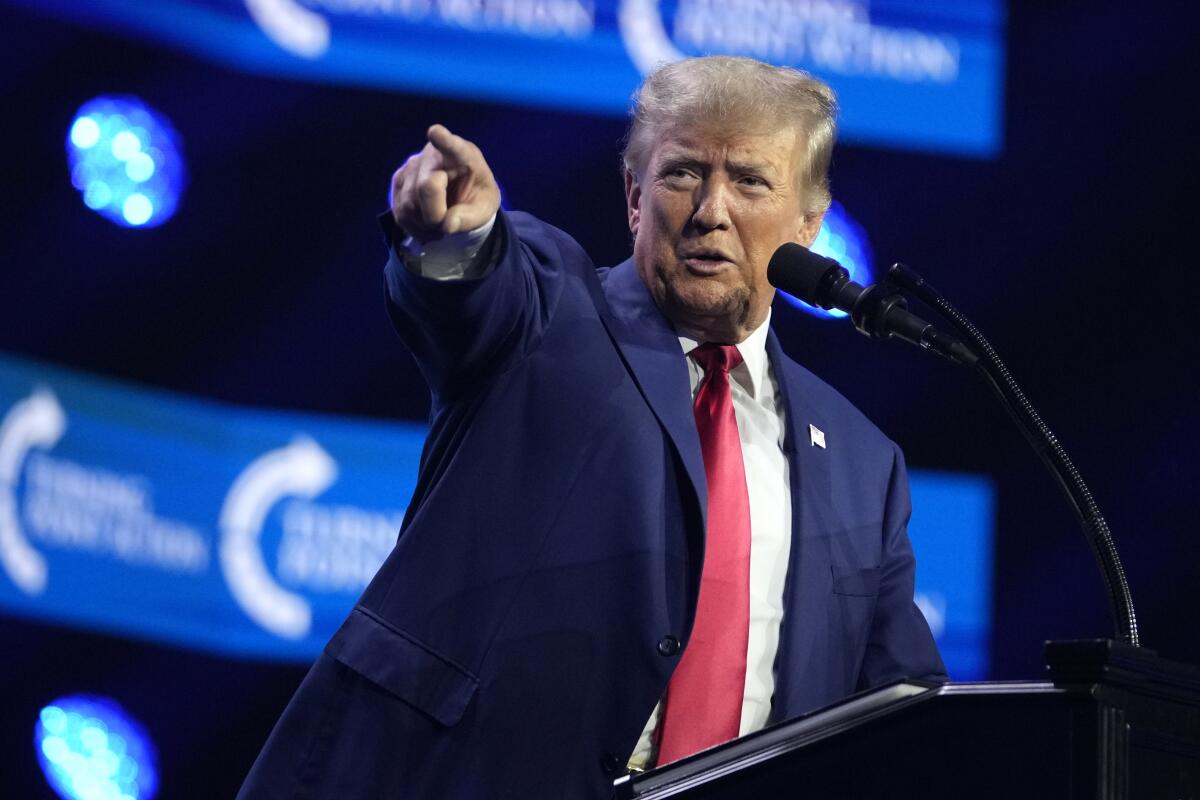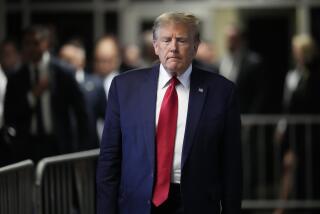Trump classified documents hearing ends with no new trial date

WASHINGTON — The first pretrial hearing in the federal case over former President Trump’s retention of classified documents after he left office, and his disregarding of a subpoena ordering him to give them back, ended without a decision on the trial schedule.
Trump’s attorneys and member of the special counsel team whose investigation led to his indictment met before Judge Aileen Cannon for the first time in federal court Tuesday for a hearing to discuss a trial date and how classified materials will be shared during the proceedings.
Last month, Cannon set a mid-August trial start date that is expected to be moved due to the unprecedented questions over how lawyers and jurors might view the classified materials involved in the case. According to the New York Times, Cannon appeared skeptical on Tuesday of the timelines proposed by both Trump’s legal team and the Justice Department.
The government has asked that the trial begin in December. Trump’s lawyers want the trial to be indefinitely postponed, citing the potential interference in Trump’s ability to campaign for the 2024 Republican presidential nomination.
On Tuesday, Trump’s team argued that a trial date should not be set at all, or that it should at least be scheduled for after voting ends in the general election, perhaps in mid-November 2024.
Cannon indicated she would enter a written order setting trial dates “soon.”
Trump was charged in June with 37 felony counts stemming from an investigation by special counsel Jack Smith, who wrote in the indictment that Trump had unlawfully taken classified records when his presidency ended in 2021, and had then obstructed the government’s efforts to retrieve hundreds of the secret documents. Trump has pleaded not guilty to all charges.
Trump was not present for the hearing, but co-defendant Walt Nauta, an aide to the former president who is charged with obstructing government efforts to recover the documents, was seen arriving shortly before it began.
The hearing was focused on how the national security law known as the Classified Information Procedures Act will affect the case. Attorneys discussed how to uphold Trump’s and Nauta’s due process rights alongside the national security interests in the highly classified materials that the FBI recovered from Trump’s Florida home nearly two years after he left office.
According to the indictment, among the recovered documents are some of the country’s most closely held secrets, including details on U.S. and foreign nations’ nuclear and other defense capabilities, potential vulnerabilities of the U.S. and its allies to military attack, and plans for possible retaliation in response to such an attack.
The judge will decide what the government is obligated to share in discovery and what is ultimately admissible at trial. If the government disagrees with how the judge rules on a particular classified discovery issue, they have the ability to appeal.
Close attention will be paid to rulings from Cannon, whom Trump nominated to the federal bench. She has been criticized for her ruling last year to assign a special master to review the classified records and other material the FBI removed from of Trump’s estate and determine whether anything should be returned to Trump. Her rulings delayed the investigation for several weeks before they were overturned by the U.S. 11th Circuit Court of Appeals, which said that she lacked the legal authority to intervene.
On Monday, Smith filed a motion for a protective order over classified information the government hands over to Trump’s defense team during the discovery process, with the goal of preventing any unauthorized disclosures of evidence reviewed over the course of the case.
Prosecutors wrote that Trump’s team had objected to some elements of the proposed order, but did not specify which parts. The special counsel also said in the legal filing that the government had already handed over two tranches of documents related to evidence obtained through subpoena, search warrants and witness interviews.
More to Read
Get the L.A. Times Politics newsletter
Deeply reported insights into legislation, politics and policy from Sacramento, Washington and beyond. In your inbox three times per week.
You may occasionally receive promotional content from the Los Angeles Times.











